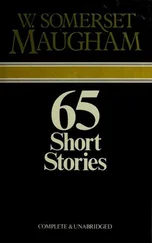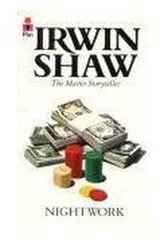Irwin Shaw - Short Stories - Five Decades
Здесь есть возможность читать онлайн «Irwin Shaw - Short Stories - Five Decades» весь текст электронной книги совершенно бесплатно (целиком полную версию без сокращений). В некоторых случаях можно слушать аудио, скачать через торрент в формате fb2 и присутствует краткое содержание. Год выпуска: 2013, Издательство: Open Road Media, Жанр: Современная проза, на английском языке. Описание произведения, (предисловие) а так же отзывы посетителей доступны на портале библиотеки ЛибКат.
- Название:Short Stories: Five Decades
- Автор:
- Издательство:Open Road Media
- Жанр:
- Год:2013
- ISBN:нет данных
- Рейтинг книги:5 / 5. Голосов: 1
-
Избранное:Добавить в избранное
- Отзывы:
-
Ваша оценка:
- 100
- 1
- 2
- 3
- 4
- 5
Short Stories: Five Decades: краткое содержание, описание и аннотация
Предлагаем к чтению аннотацию, описание, краткое содержание или предисловие (зависит от того, что написал сам автор книги «Short Stories: Five Decades»). Если вы не нашли необходимую информацию о книге — напишите в комментариях, мы постараемся отыскать её.
Short Stories: Five Decades — читать онлайн бесплатно полную книгу (весь текст) целиком
Ниже представлен текст книги, разбитый по страницам. Система сохранения места последней прочитанной страницы, позволяет с удобством читать онлайн бесплатно книгу «Short Stories: Five Decades», без необходимости каждый раз заново искать на чём Вы остановились. Поставьте закладку, и сможете в любой момент перейти на страницу, на которой закончили чтение.
Интервал:
Закладка:
“I am going back to Kansas,” McGill said, “by the first plane.” But he said it in a whisper, for my ears only.
“There is an excellent play by a distinguished Italian author, unfortunately now dead,” I went on. “The title of the play, translated into English, is Tonight We Improvise . The writer of the play, if my memory is correct, won the Nobel Prize. I am asking you to take heart from his title and do as much this afternoon to win a mere football game.”
Here and there on several faces I could see a fugitive gleam of hope, but the general mood was still one of abject surrender. So far, McGill’s warning that professional athletes could not be moved by locker-room appeals was an accurate appraisal of the situation. “One more detail,” I said, holding up my hand as some of the athletes, looking like men on the way to their own execution, prepared to leave the room. “If you win today,” I said flatly, without emotion, “each member of this club, including coaches and trainers, will have his winning share doubled by me.”
The men who were moving toward the door stopped dead in their tracks. “What’s more,” I said, “again, if you win, each and every player, coach and trainer in our confederation, the men you will be facing for the rest of your careers, will receive a bonus of ten thousand dollars.” I did not feel I had to add that what they would be faced with in the following seasons would be either lifelong gratitude or murderous fury.
A curious sound could now be heard in one corner of the room, like the growling of wild animals some distance off. The growling grew to a roar, frightening and inhuman, and filled the locker room, and the athletes were jostling one another in their eagerness to race out onto the field.
McGill helped me down from the rubbing table. His face was white. “Shades of Knute Rockne,” he said. “One for the Gipper. Two for the bank. Permit me to shake your hand, man.”
We shook hands gravely and went out, walking slowly and in a dignified manner, to the bench.
On the kickoff, the team swept down the field like an assault of dervishes inflamed by visions of heaven, impervious to wounds or death. The kicker, who had not made a tackle since his sophomore year in high school, brought the runner down on Dallas’ 21-yard line. He hit the man so hard that the ball spurted out of the melee and was scooped up by a lumbering tackle who fled across the goal line with the speed of an Olympic 100-yard-dash man. The kick for the point was good and the score after just a few seconds of the half was now Dallas 27, Montpelier 14.
From then on, the ambulances came and went. The ferocity of play was so great that I told myself that if I were in a position of political power, I would abolish football except in prisons and commando camps.
“It’s like nothing anybody has ever seen before,” McGill kept whispering hoarsely beside me, as safety men dropped quarterbacks behind the line of scrimmage, ends threw passes, tackles drifted, guards changed positions with halfbacks and plunged for first downs or ran lonely weird pass patterns into the end zone. Our kicker, because of his new enthusiasm for going down under his own kicks, was hurt, but a substitute center fell back and drop-kicked a crucial field goal from 33 yards out. Barefooted. Blockers appeared in places that reason told they could never reach, tackles split wedges like walnuts, men whose names had hardly ever made the line-ups called signals, ran away from their interference, instead of behind it, and galloped toward the Dallas goal, broken plays were the rule rather than the exception as the heat of battle made men forget their playbooks entirely and scramble savagely through pile-ups. I had the firm impression that none of our players knew what he was going to do or actually did on either the offense or the defense and the spotters were screaming helplessly over the telephone lines to the bench.
With all order gone and confusion rampant, Dallas began to disintegrate. Since our men usually had no notion of where they were going, there was no way in which Dallas, a highly trained, logical group of athletes, could foresee any development, and the poor Dallas fullback was heard to say, as he was thrown out of bounds by four tacklers. “Why the fuck don’t you guys play football?”
Still, with only seconds remaining in the game, Dallas led 34 to 30. On the side lines, McGill stood with his back to the field, staring desolately up to heaven. The ball was on the Dallas 30-yard line, but even if we had had a place kicker we could depend upon, three points would still leave us on the short end of the score. We used our last time out and the last substitutes trotted onto the field, one of them with instructions from me to call for an end-around play. A halfback who had been out of the line-up for the last four games with a concussion of the brain started toward the bench, moving in a peculiar manner. Suddenly, I realized that he thought he had been pulled from the game and was heading for the bench, which would have left us with only ten men on the field, making whatever play we ran invalid. I shouted at him to stand still and he came to a halt two feet from the side line, a puzzled look on his face.
The ball was snapped, the quarterback scampered to his rear and turned to hand the ball off to the right end. Just as the end reached the quarterback, he and the quarterback were hit simultaneously by the left end, who, he told me later, had thought he had been designated to run the play. The three men dropped to the ground as though they had been felled by sledge hammers and the ball spurted out of the melee and back to the 50-yard line, with what seemed like dozens of players racing for it and bodies dropping on all sides.
Our left guard, who had thought it was a pass play and had come back to protect the quarterback, managed to grab the ball and run backward. Meanwhile, the halfback who had thought he had been removed from the game was walking pensively, all alone, his head down, toward the Dallas goal.
“Throw it! Throw it!” I yelled.
Surrounded by Dallas players, his eyes blank with fear, the guard, who in eight years of football had never thrown a single pass, leaped above the menacing hands all around him and threw a wobbly, end-over-end high pass that moved so slowly you could count the lace holes on the ball. The halfback, walking all alone toward the Dallas goal, turned, as though he had just remembered he had left something behind him, and was hit in the chest by the ball. It bounced off him and above his head. He put his hands up as it came down and he had it. He was only ten feet from the goal line and he limped across it, put the ball down in the end zone and dropped on it.
Final score, Montpelier 36, Dallas 34. The silence of the crowd was funereal as our players ran hysterically off the field. McGill was so exhausted he had to be carried to the locker room by two trainers.
The official celebration of our victory came in March, after the checks had been mailed out to all the teams in the confederation. I hired the large ballroom in the Waldorf Astoria for a banquet for over 2000 of my guests, who included all the personnel of the eight clubs and whatever family and lovers of either sex they wished to invite.
I made the only speech. I thanked them one and all, announced that I was retiring, because of reasons of health, from all connection with the sport, though I would, of course, keep a strong sentimental attachment to those once-scorned athletes who had needed only a fair second chance to show their worth. Bo McGill would succeed me as president of the confederation. I didn’t say so, but I feared that another game on the bench would endanger his life. In farewell, I announced that I was turning over the ownership of the teams to the men themselves, though naturally I would expect to be paid back through the years for my original investment. I did not bring up my strongly held belief that wanton charity is counterproductive. The announcement gave rise to a wild demonstration, in which 1000 glasses were broken and half that number of chairs were destroyed in various ways. The next day, the newspapers hailed my gesture as a landmark in creative capitalism.
Читать дальшеИнтервал:
Закладка:
Похожие книги на «Short Stories: Five Decades»
Представляем Вашему вниманию похожие книги на «Short Stories: Five Decades» списком для выбора. Мы отобрали схожую по названию и смыслу литературу в надежде предоставить читателям больше вариантов отыскать новые, интересные, ещё непрочитанные произведения.
Обсуждение, отзывы о книге «Short Stories: Five Decades» и просто собственные мнения читателей. Оставьте ваши комментарии, напишите, что Вы думаете о произведении, его смысле или главных героях. Укажите что конкретно понравилось, а что нет, и почему Вы так считаете.











